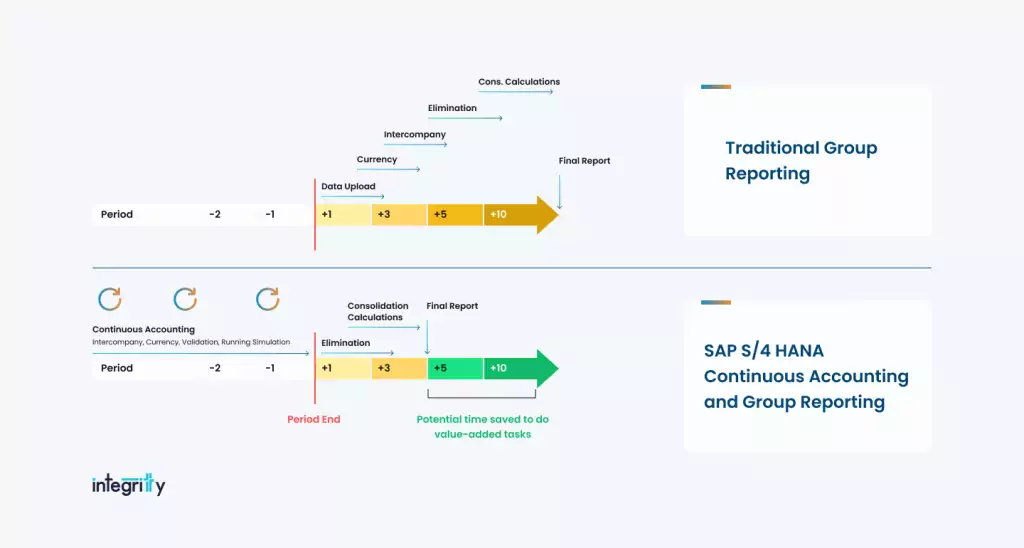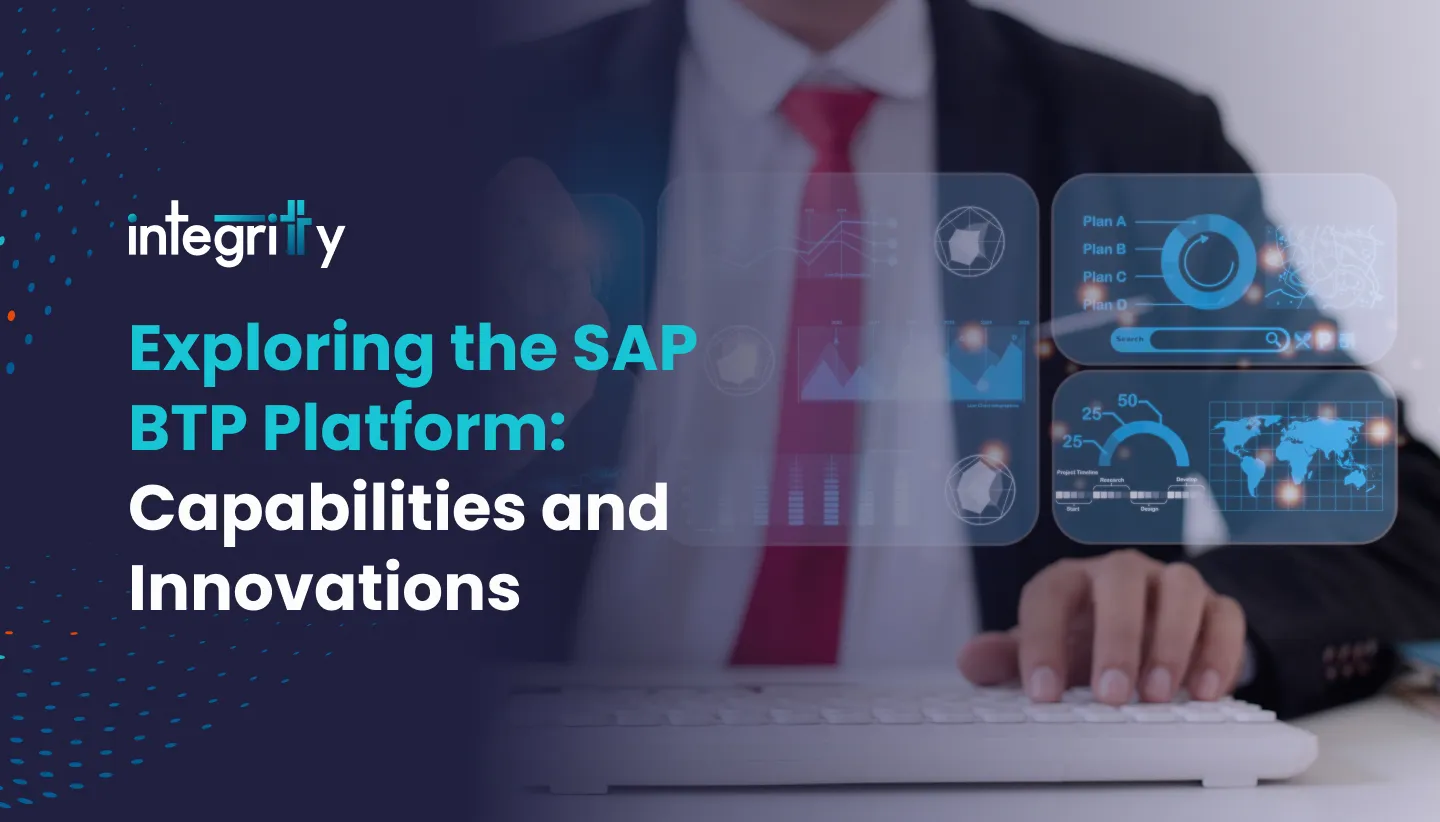For organizations with complex legal structures spanning multiple subsidiaries, branches and units, consolidated financial reporting is a major exercise. SAP S/4HANA introduces a simplified approach to group reporting with real-time consolidation capabilities. In this post, let’s understand what S/4HANA group reporting is and how it can help optimize financial consolidation processes.
What is S/4HANA Group Reporting?
S/4HANA group reporting allows companies to produce consolidated financial statements by combining financial data across multiple company codes and legal entities. It supports both accounting consolidations for published financials as well as management consolidations for internal reporting.

Key capabilities include:
- Currency translation
- Intercompany eliminations
- Minority interest handling
- Equity method and cost method consolidations
- Consolidation of investments
- Management consolidation using cost centers
S/4HANA uses the universal journal as the single source of truth for all financial transactions across units. Real-time consolidation is then performed using predefined consolidation rules and workflows.
Key Benefits of Group Reporting with S/4HANA
Here are some of the major benefits that S/4HANA group reporting offers:
- Real-time consolidation – Financial data is continuously consolidated rather than periodic batch processing. This ensures up-to-date group statements.
- Unified data model– The universal journal provides a consolidated view of financial data across the group. This reduces data reconciliation and transformation efforts.
- Simplified processes – Consolidation rules, account mappings and adjustments can be defined once and reused across periods. Pre-delivered configuration accelerates implementation.
- Reduced data footprint – Elimination of aggregation documents and redo logs streamlines data flows. Only financial transactions are stored.
- Standardized user experience– SAP Fiori apps provide consistent, simple user experience for group reporting activities. Access is available on desktop and mobile.
- Flexible reporting– Group financial statements can be accessed real-time using standard SAPGUI transactions, SAP Fiori apps or through reporting tools.

How S/4HANA Group Reporting Works
At a high level, this is how group reporting and consolidation works in S/4HANA:
- Financial transactions from each unit are continuously captured in the universal journal in real time.
- Consolidation rules and mappings are defined centrally. Local and corporate account mappings, intercompany eliminations, currency translations etc. are set up.
- Period end closing activities across units trigger consolidation workflows.
- The system automatically consolidates balances, applies consolidation postings, handles currency conversions, and calculates minority interests to derive group values.
- Consolidated financial statements can be accessed real-time through Fiori apps, SAPGUI transactions or reporting tools.
- Any changes or adjustments in local unit financials automatically update group reporting real-time. No separate consolidation runs needed.
- Planning, simulation and forecasting can also be performed for additional insights. Multiple versions for different scenarios are supported.
SAP Group Reporting Vs SAP BPC
A while back, SAP unveiled the updated version of SAP BPC: SAP BPC 11.1 for BW/4HANA. With the introduction of SAP Group Reporting, customers now have another innovative SAP solution for consolidation. However, deciding between the two can be a tad confusing. Here’s a simplified guideline for most enterprises:
- For enterprises that have embraced SAP S/4HANA Finance as their primary financial framework, combining SAP Group Reporting with SAP Analytics Cloud is a wise move. This is primarily because SAP Group Reporting seamlessly meshes with S/4HANA data.
- For those dealing with multiple source systems and seeking an in-house solution for consolidation, budgeting, and planning, SAP BPC 11.1 for BW/4HANA stands out. It’s adept at merging data from various systems and boasts superior planning features.
- For entities utilizing SAP BW/4HANA, the latest SAP BPC 11.1 version offers enhanced integration and fine-tuned performance, enriching your planning and consolidation endeavors.
Key Takeaways
In summary, S/4HANA has introduced several innovations that reinvent group reporting processes for the digital era. Some of the key takeaways include:
- Real-time consolidation and unified data model eliminate batch processing latencies and reconciliation needs.
- Simplified configuration through centralized rules reduces time and effort for ongoing consolidations.
- Standard SAP Fiori user experience increases adoption across casual and expert users.
- Universal journal combined with flexible reporting allows up-to-date financial insights.
For global enterprises, moving to S/4HANA group reporting can transform period-close and financial reporting processes through continuous accounting. It provides accurate, near real-time financial position across the organization.
Unlock the Full Potential of S/4HANA Group Reporting
Simplify financial consolidation and elevate reporting efficiency with S/4HANA Group Reporting. Gain real-time visibility into your organization’s financial data for accelerated decision-making. Our SAP experts facilitate smooth implementations, unlocking your system’s full potential. Partner with us to transform your financial processes through timely, accurate data consolidation. Let’s work together to maximize business clarity and agility with S/4HANA Group Reporting. Contact us today to redefine financial reporting.






